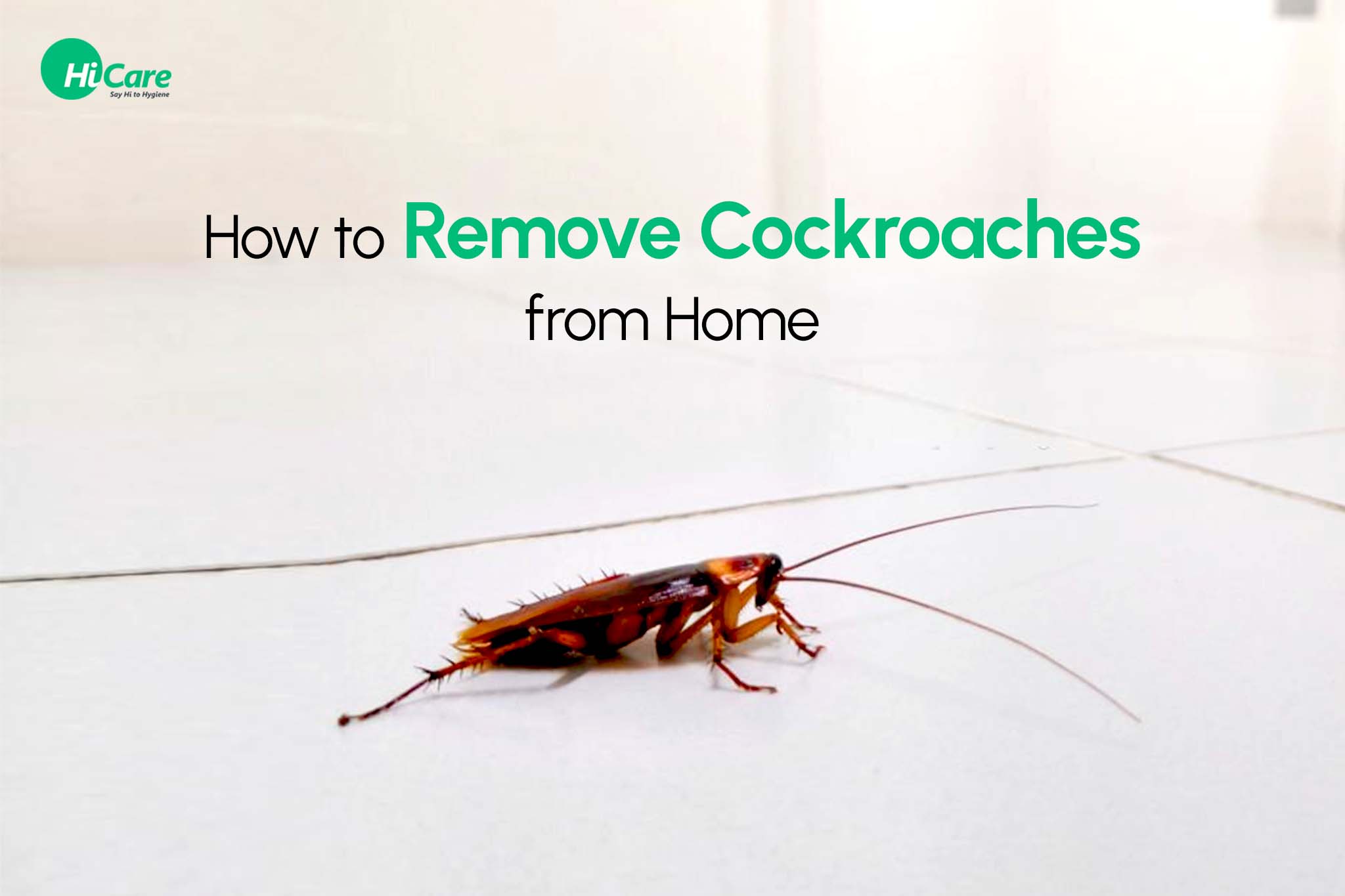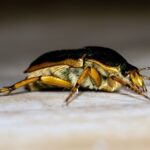Those creepy crawlies, cockroaches—nobody wants them hanging around! They’re notoriously tough to get rid of, and battling them can feel like a losing war. But if harsh chemicals aren’t your cup of tea, and you’d rather take a natural approach, you’re in the right place. This guide is your one-stop resource for making your home a roach-free zone using simple, safe, and often pleasant-smelling ingredients you probably already have. Learn how to transform your pantry and garden into a roach-repelling fortress, all while keeping your family and pets safe.
Roach Repellents: Nature’s Arsenal
Let’s face it, cockroaches aren’t just unwelcome houseguests; they can spread germs and trigger allergies. So, how do you keep these unwanted pests at bay? You might be surprised to learn that your pantry and garden likely hold a wealth of natural roach repellents. These readily available ingredients can disrupt roach behavior and encourage them to seek less fragrant pastures.
Pantry Power: Repelling Roaches with Everyday Items
Believe it or not, your kitchen is stocked with secret weapons against roaches. These critters are highly sensitive to strong smells, and numerous common household items pack a powerful aromatic punch they dislike.
- Peppermint Oil: Cockroaches really dislike the scent of peppermint. Mix a few drops of peppermint essential oil with water in a spray bottle. Spritz this concoction around areas where you’ve noticed roach activity—baseboards, under sinks, and around garbage cans are good starting points. Be cautious around pets, especially cats, as peppermint oil can be harmful to them.
- Citrus Fruits: The peels of lemons, oranges, and other citrus fruits contain d-limonene, a compound that’s toxic to roaches. Scatter fresh peels under your sink, in pantries, or anywhere roaches might be lurking.
- Garlic: Another potent smell roaches avoid. Crush a few cloves and place them strategically around suspected roach hiding spots. Be mindful of placing them directly on delicate surfaces, as garlic can sometimes stain.
- Bay Leaves: These fragrant leaves are a kitchen staple and a natural roach repellent. Scatter a few bay leaves in your pantry, cabinets, and other food storage areas.
Essential Oils: Aromatherapy for You, Repellent for Them
Peppermint oil isn’t the only essential oil that can help in your fight against roaches. Other robust scents like eucalyptus, lavender, tea tree, oregano, and lemongrass also work wonders. These essential oils are thought to interfere with a cockroach’s ability to navigate, essentially overwhelming their senses and disrupting their olfactory receptors. Add a few drops of your chosen essential oil (or create a custom blend) to a spray bottle filled with water. Just like the peppermint spray, target areas like baseboards, under sinks, and the perimeter of your home. Remember to always dilute essential oils, as they can be potent, and research any potential risks to pets or allergy-prone individuals.
Curious about what repels other pests? Discover how to keep bees away with our guide on what repels bees.
Chemical Control: When Natural Methods Aren’t Enough
While natural methods are often effective, sometimes you need to bring out the big guns. Commercial roach sprays, baits, and traps can help manage heavier infestations. Always prioritize safety and follow product instructions carefully, especially around children and pets. If you have a severe infestation or are unsure which product to use, consider consulting a pest control professional.
- Sprays: These provide a quick knockdown but may not eliminate all roaches.
- Baits: Offer a more targeted, long-term solution by attracting roaches to a poisonous food source.
- Traps: Great for monitoring roach activity and gauging the effectiveness of your other methods.
Prevention: Keeping Roaches Out
Prevention is your best defense. Maintaining a clean and tidy home is the most effective way to discourage roaches in the first place and significantly reduce the likelihood of an infestation.
- Clean Up Crumbs and Spills: Eliminate food sources that attract roaches by wiping up spills immediately and sweeping or vacuuming regularly. Pay close attention to areas where food is prepared, served, and consumed.
- Seal Entry Points: Roaches can squeeze through incredibly small openings. Seal cracks or gaps in walls, floors, and around pipes and windows to prevent their entry.
- Store Food Properly: Keep all food, including pet food, in airtight containers to further limit food sources and maintain freshness.
- Manage Moisture: Fix any leaky pipes or faucets and avoid leaving standing water, as moisture is essential for roach survival.
- Garbage Duty: Don’t let your garbage become a roach buffet. Empty trash cans frequently and ensure they have tight-fitting lids.
Understanding Roach Behavior: Why Scents Work
Roaches rely heavily on their sense of smell to navigate and find food. This reliance is also their Achilles’ heel. The scents discussed above overload their olfactory system and disrupt their ability to locate food sources and navigate. This sensory overload makes your home a much less appealing place for them to set up shop.
Debunking Roach Repellent Myths
Many home remedies for pest control lack scientific backing. For example, some believe coffee grounds repel roaches. While some studies suggest that the caffeine in coffee grounds might be toxic to insects, more research is needed. Similarly, claims about fabric softener killing roaches are largely anecdotal and require further investigation.
The Best Roach Deterrent: A Multifaceted Approach
What’s the best way to repel roaches? There’s no one-size-fits-all answer. The most effective approach depends on several factors, including the severity of the infestation, your personal preferences, and your home environment.
- Start with natural methods: Essential oils, herbs, and spices are a great first line of defense, especially for prevention.
- Consider chemical control: For larger infestations, chemical solutions may be necessary, but always prioritize safety and follow product instructions carefully.
- Integrated Pest Management (IPM): This approach combines natural repellents, targeted insecticides (if needed), and thorough sanitation for the best long-term results.
| Repellent | Type | Likely Effectiveness | Safety Concerns |
|---|---|---|---|
| Peppermint Oil | Natural | High | Low (except for pets) |
| Citrus Peels | Natural | Medium | Low |
| Garlic | Natural | Medium | Low |
| Bay Leaves | Natural | Medium | Low |
| Eucalyptus Oil | Natural | High | Low |
| Lavender Oil | Natural | Medium | Low |
| Oregano Oil | Natural | High | Low |
| Lemongrass Oil | Natural | High | Low |
| Commercial Sprays | Chemical | High | Medium-High |
| Roach Baits | Chemical | High | Medium-High |
| Roach Traps | Chemical | Medium | Low |
Don’t be discouraged if you don’t see results immediately. Roach control is an ongoing process, and finding the right strategy may require some experimentation. Here’s a handy tip: even something as small as properly disposing of dead roaches can prevent attracting more. Intrigued by other pest control strategies? Discover what granddaddy long legs eat and how they impact your home environment in our article what do granddaddy long legs eat.
With diligence, the right approach, and a little patience, you can evict those unwelcome cockroach houseguests and reclaim your home.










1 thought on “What Repels Roaches Naturally: Effective DIY Solutions & Proven Strategies”
Comments are closed.